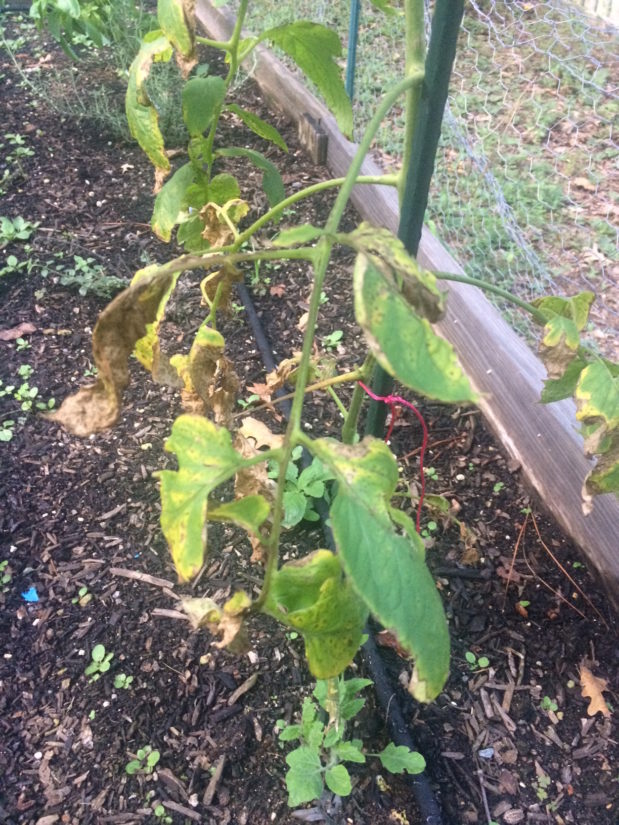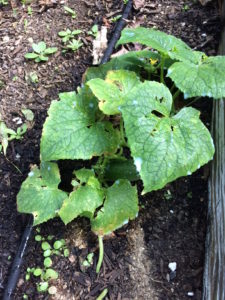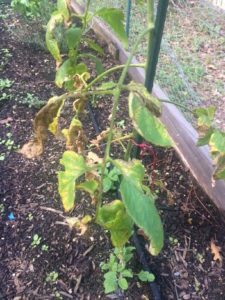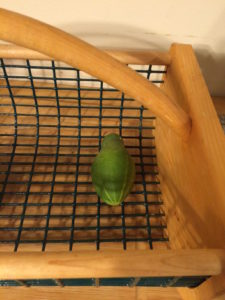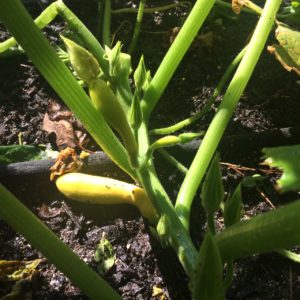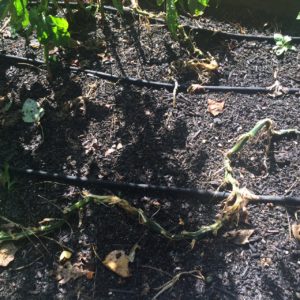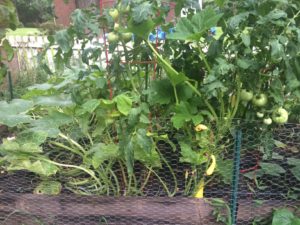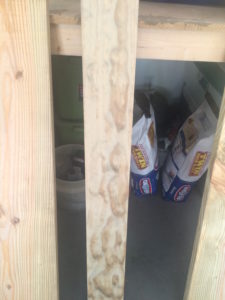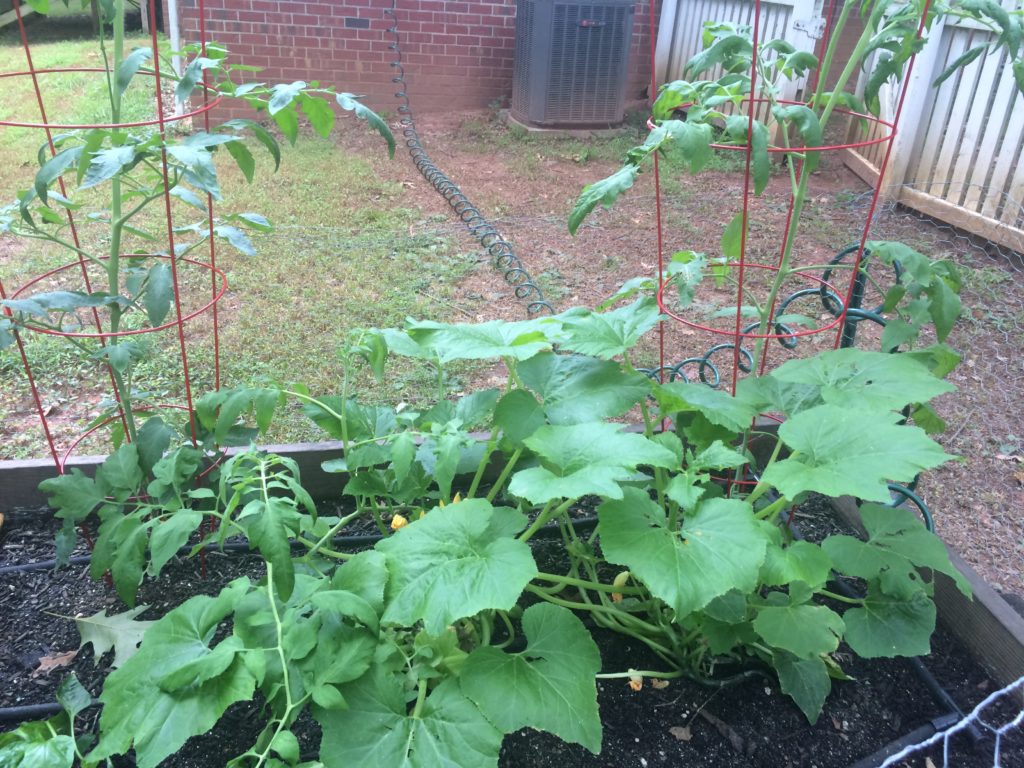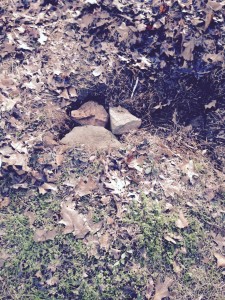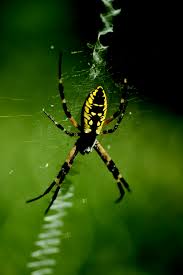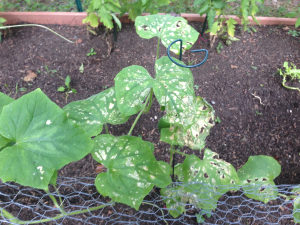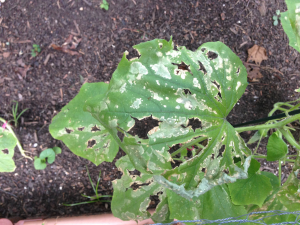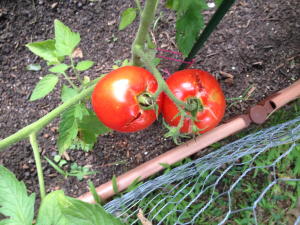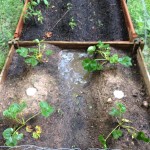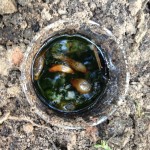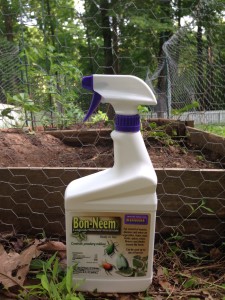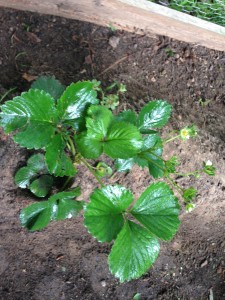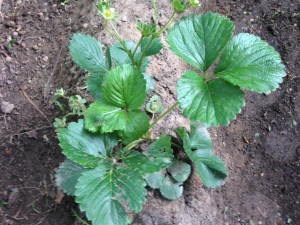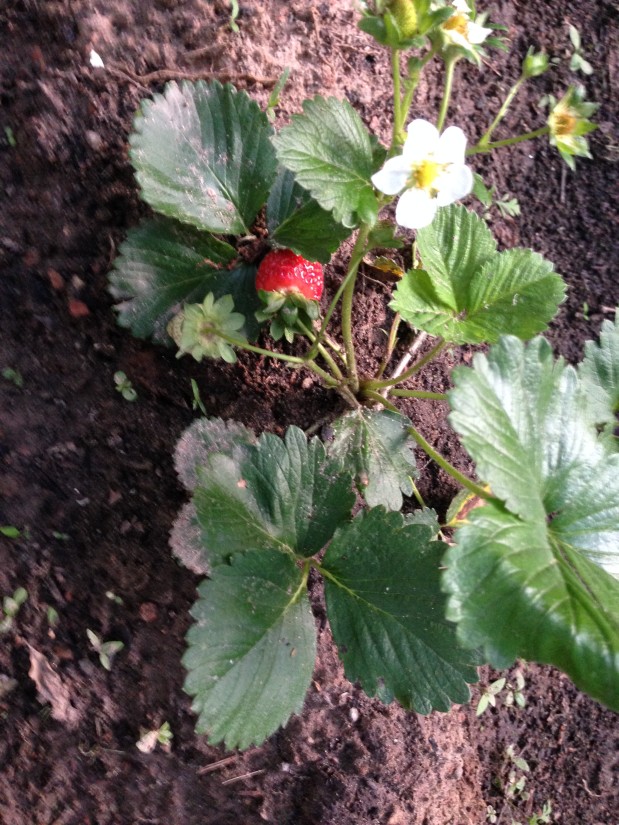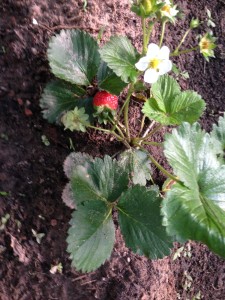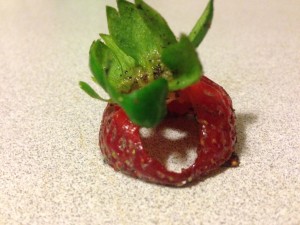I have more gardening problems, although not 99 like Jay-Z. Yes, I know I’m still stuck in the 90s but these references are the first ones that pop into my head. I suppose I should make it a top goal this summer to familiarize myself with more recent music so I have fresher pop culture references.
Back on topic, the garden is in semi-struggle mode. I realize I’m a about month behind because I had to replant in late June. On the bright side, the squash, basil and rosemary plants look strong.
Unfortunately I had to email NC Cooperative Extension Master Gardeners again last week about the remaining plants. There were holes in the cucumber plant leaves and shriveling leaves on the tomato plants. I thought the shriveled leaves may be the result of the heat and the holes from some type of pest. The Master Gardeners responded quickly as usual and delivered the bad news.
“This damage doesn’t look typical to that of insects eating leaves. In the first picture the leaves look torn with little tissue missing and that looks like mechanical injury to me. I see you have chicken wire around the garden so it’s hard to imagine something walked through there but that’s the kind of thing that would cause mechanical injury. The other pictures look like some sort of disease (fungal, bacterial or viral). Note the wilting of the leaf edges – they are not bitten. It’s hard to tell from these pictures just which disease it is…”
To combat the fungus, I first tried using a milk and water mixture. When that didn’t stop the progress of the fungal invasion, I had to take it up a step. I purchased an organic fungicide, Serenade by Bayer which can be used up to the day of harvest. It’s been less than a week so we’ll see if this is the solution to the garden’s pest and fungicide issues.
I just want to give a shout out for the quick diagnosis by NC Cooperative Extension Master Gardeners. They are a great resource. If you’re in North Carolina, you should definitely take advantage. Despite my ongoing gardening problems, NC Cooperative Extension definitely isn’t one of them!

